Opuni case: 'It's beyond impunity, unconstitutional, unlawful' - Lawyer says CJ has no power to shove off presiding Justice and install herself as president
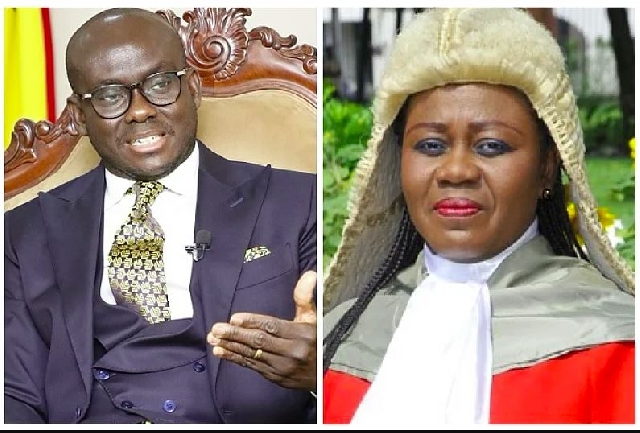 Godfred Dame and CJ
Godfred Dame and CJ
A private legal practitioner, Ms Francisca Serwaa Boateng, has criticised Chief Justice Gertrude Torkornoo for reconstituting a five-member Supreme Court panel without providing reasons.
The panel was hearing the appeal of former COCOBOD Chief Executive, Dr. Stephen Opuni.
Ms. Boateng described the Chief Justice’s actions as "unlawful" and an affront to constitutional democracy.
She expressed deep concern over what she termed the "unhealthy concentration of power" in the hands of the Chief Justice.
"The withdrawal was against the express constitutional position in article 157(3). The Chief Justice also has no power to shove off the presiding Justice and install herself as president of the panel when she took no part in the proceedings leading up to the judgment. Such attitude is beyond impunity. It is unconstitutional. It is unlawful. It is an affront to constitutional democracy", Ms Boateng argued.
Dr. Opuni had filed a suit at the Supreme Court on 7 July 2023, seeking to reverse an Appeals Court decision made on 3 July 2023 in favour of the Attorney General.
This decision had overturned a High Court ruling that called for a fresh trial of Dr. Opuni and two others.
The trial was initially presided over by retired Supreme Court judge Justice Clemence Honyenuga and later taken up by Justice Kwasi Anokye Gyimah.
The first Supreme Court panel, presided over by Justice Mariama Owusu, convened on 17 January 2024, ordering both the appellant and the Attorney General to file their statements of case within 21 days.
Both parties complied, and a judgment was scheduled for 8 May 2024.
However, when the parties appeared in court on the scheduled date, they were met by a newly reconstituted panel chaired by Chief Justice Torkornoo, with three new members. Dr. Opuni’s lawyer, Mr Samuel Codjoe, objected to the new panel based on Article 157(3) of the 1992 Constitution, but this objection was overruled by the Chief Justice, who asserted that the case was not ripe for hearing when the previous panel ordered the filing of statements.
This reconstitution has been widely condemned, with various civil society organisations and legal experts, including the Lawyers In Search Of Democracy (LINSOD), ASEPA, and legal luminaries like Prof. Kweku Asare (Azar) of the Ghana Center for Democratic Development (CDD-Ghana), voicing their objections.
They argue that the Chief Justice’s actions violate constitutional provisions and undermine judicial independence.
Ms. Boateng, in a detailed post on her official website, argued that the Chief Justice’s claim that the case was not ripe for hearing is untenable.
She explained that in criminal appeals, the submission of statements of case signifies the close of legal arguments, leaving only the judgment to be rendered.
Therefore, the reconstitution of the panel was against the express constitutional provisions.
The Ghana Bar Association's silence on the issue has also been criticised, with Ms. Boateng lamenting their lack of response.
Despite the Attorney General defending the Chief Justice’s decision, Ms. Boateng dismissed his reasoning as legally flawed and questioned the propriety of his role in defending the Chief Justice while being an interested party in the appeal.
Ms. Boateng concluded by calling for the independence of the corporate judiciary rather than just individual judges, warning of potential judicial mayhem if power is overly concentrated in the hands of the Chief Justice.
AG's defence of CJ
In his defence of the Chief Justice, Attorney General Godfred Yeboah Dame accused some media houses he claims are "aligned to" Dr Stephen Opuni, of "persistent attempts" to "distort the effect of court proceedings relating to the prosecution of the former Chief Executive Officer of Ghana Cocoa Board".
"These publications, many a time, are a gross misrepresentation of the evidence led at the trial, intended to ridicule the case of the prosecution and create false impressions about the soundness of the defence put up by Dr Opuni at his trial", Mr Dame said in a statement bearing his signature.
Referencing a recent publication by the Herald newspaper concerning the Chief Justice's panel reshuffle, Mr Dame said his office has observed that "most of the publications on the 'Opuni case', orchestrated by the accused persons themselves, transgress the limits of permissible speech, as they are calculated at perverting the course of justice and/or prejudicing the fair hearing of that case".
"Nonetheless, the Republic remains focused on adducing cogent evidence in substantiation of the charges against all the accused persons in the case mentioned above and will not be overawed in that process," he noted .
For the purpose of educating the public, Mr Dame explained that "no party to proceedings in court has a right to insist on a particular court or panel of a court to hear his or her case."
He noted that in accordance with the Constitution and the Courts Act, 1993 (Act 459), "the Chief Justice determines the composition of every court for the hearing of any matter."
"The Chief Justice is a member of every court in the country and, has the power to request in writing a Justice of any of the Superior Courts of Judicature to sit on either the Court of Appeal or the High Court at any time. Further, consistent with article 128(3) of the Constitution, the Chief Justice presides at sittings of the Supreme Court, and in his absence, the most senior of the Justices of the Supreme Court, as constituted, shall preside", he added.
He stressed: "A deliberate disregard of these basic principles is inimical to the sound adjudication of cases and portends danger for the entire society."
Source: Classfmonline.com
Trending News

Ghana Medical Trust Fund engages private specialist hospitals to expand access to advanced healthcare
14:51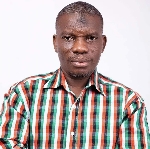
Leadership gap filled: Mahdi Gibrill steps in as NDC acting elections chief
19:08
Ho Teaching Hospital Board calls for support to address infrastructure gaps
20:35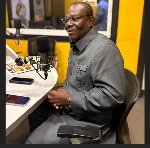
Bedzrah calls for clear roles between MPs and DCEs to boost development in Volta Region
10:46
Vice President commends Lands Minister for resource management, backs fight against illegal mining
13:50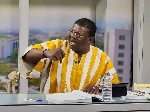
GBA faces pressure over lack of transparency in handling members’ annual dues
20:11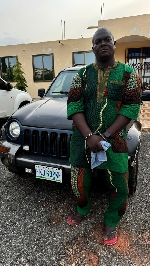
Volta police foil ₵1m drug trafficking attempt, reject $20,000 bribe
02:06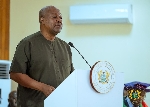
Lasting solutions to illegal mining lie in education and innovation — Mahama says at UMaT
18:03
Awutu Senya East MP donates cement to support construction of Iron City Police post
14:23
Bawumia is NPP’s surest path to power– Bole-Bamboi MP aspirant
16:18




